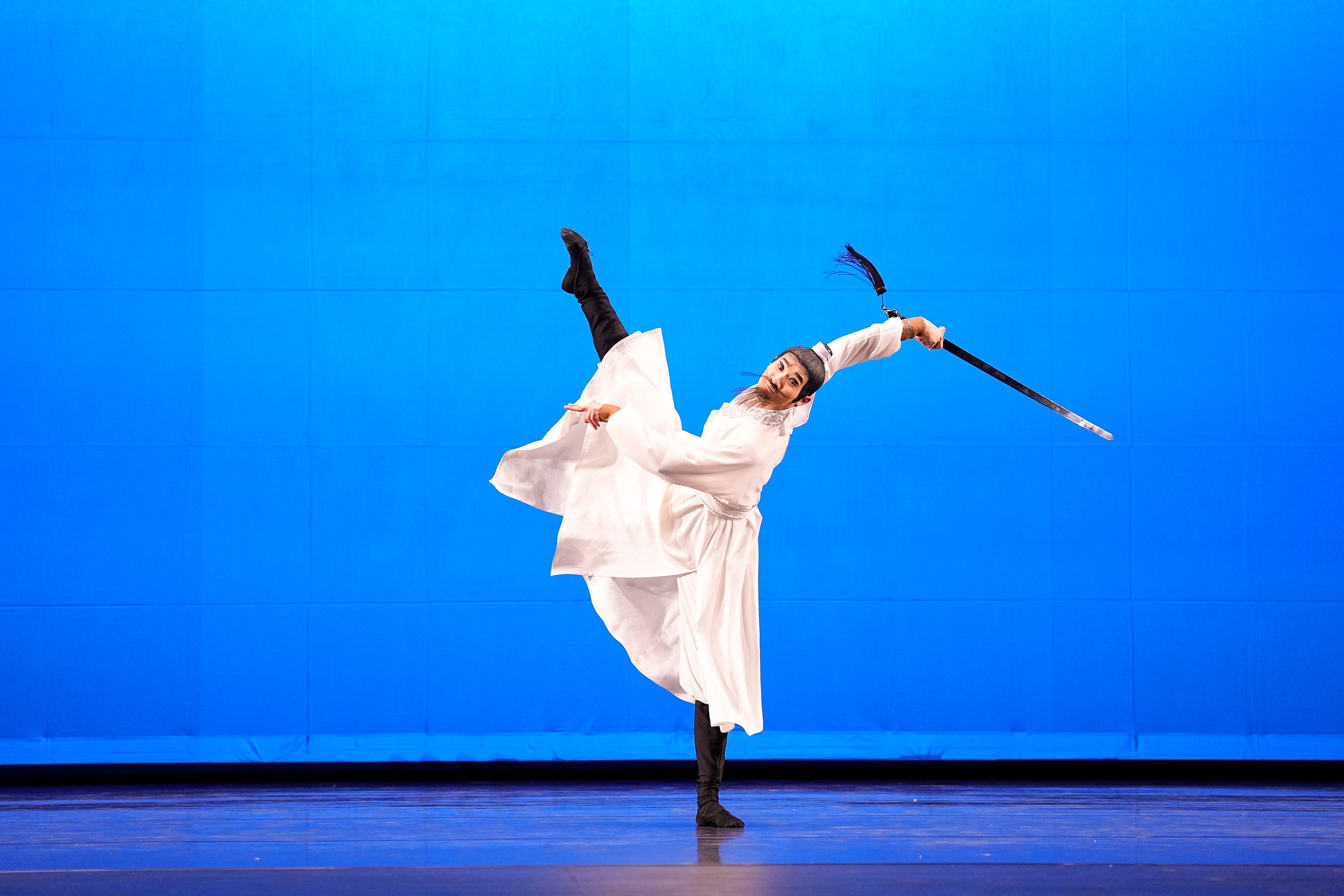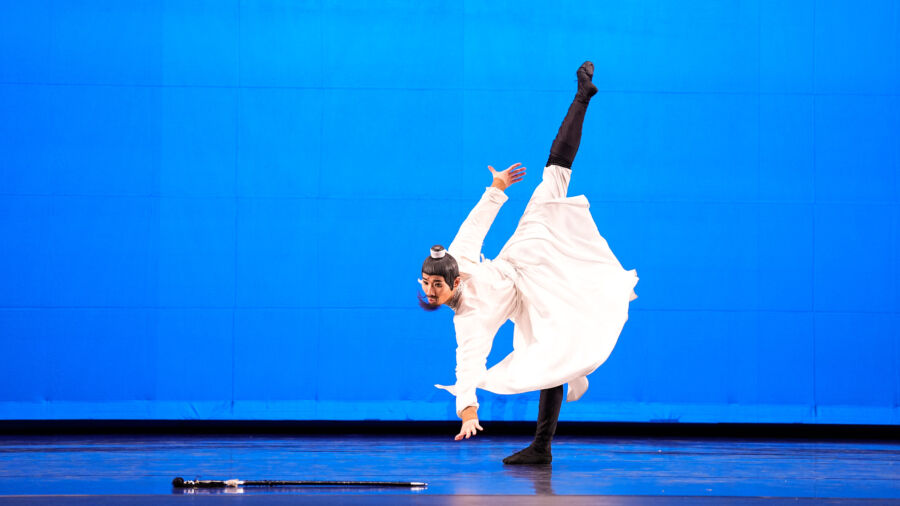At the NTD International Classical Chinese Dance Competition, dancers from all over the world come to challenge themselves and learn from their peers—dancers from Shen Yun included.
Since its inception in 2006, New York-based Shen Yun Performing Arts has come to set the standard for classical Chinese dance. The dance form is a comprehensive one, with roots stretching back thousands of years, and the NTD competition requires dancers to display it in its most authentic form.
David Xiao, a dancer from Shen Yun, participated in the competition for his third time this year, and will be performing in the finals on Sept. 10.
“I feel like every year I have a lot of new understandings, especially from watching so many talented people,” he said. “This year the overall level is, as usual, a lot higher than the last. So just watching other people inspires me to keep pushing a level higher.”
Mr. Xiao performed “Transient Soul,” a narrative dance piece “about a person who, although his physical body is still in this human world, his mind is going somewhere higher.”
“Although he’s been through a lot of conflicts and wrongs on this human level, he is still lighthearted, because he knows in the future he’s going to go toward heaven, and that he’s connected to the heavens above,” Mr. Xiao said.
“On earth, you should try to be lighthearted, because in the end, no matter what you go through, if you’re a good person then you’re going to go higher, you’re going to go toward the heavens.”

The dance is an original piece, and creating the movements and imbuing it with meaning was a long process during which he received a lot of help from his peers and mentors. A key component to the dance was the addition of a sword, which made the dance even more difficult.
Shen Yun is known for pioneering the “shen dai shou, kua dai tui” dance technique, which was imparted to the company dancers by Artistic Director D.F. In English, the method translates into “body leading the hands, hips leading the legs.” The ancient method used to be passed down from mentor to apprentice, but was lost to history.
The dancers there have been studying it for several years now, but it was a long, and sometimes confusing, process, said Mr. Xiao.
“Shen dai shou with normal movements, it’s already pretty hard, to be honest,” he said. “But then adding a sword when you move is even harder because it’s not just your body leading your hands, it’s your body leading the sword, which is something even higher level.”
The method is one that classical Chinese dancers the world over have been trying to emulate, many even coming to participate in the competition specifically to see participating Shen Yun dancers use it up close.
“It looks more elegant,” he explained.
Mr. Xiao said his goal in participating in the competition this time was largely to try to improve his use of the method. He wanted to find a lighter, more easygoing way to use it.
“I was pretty nervous!” he said. “I think to a certain degree, I need some luck … [but] each time I’m on stage, I feel like it’s another piece of experience that I gained, and it helps in the future for sure.”

